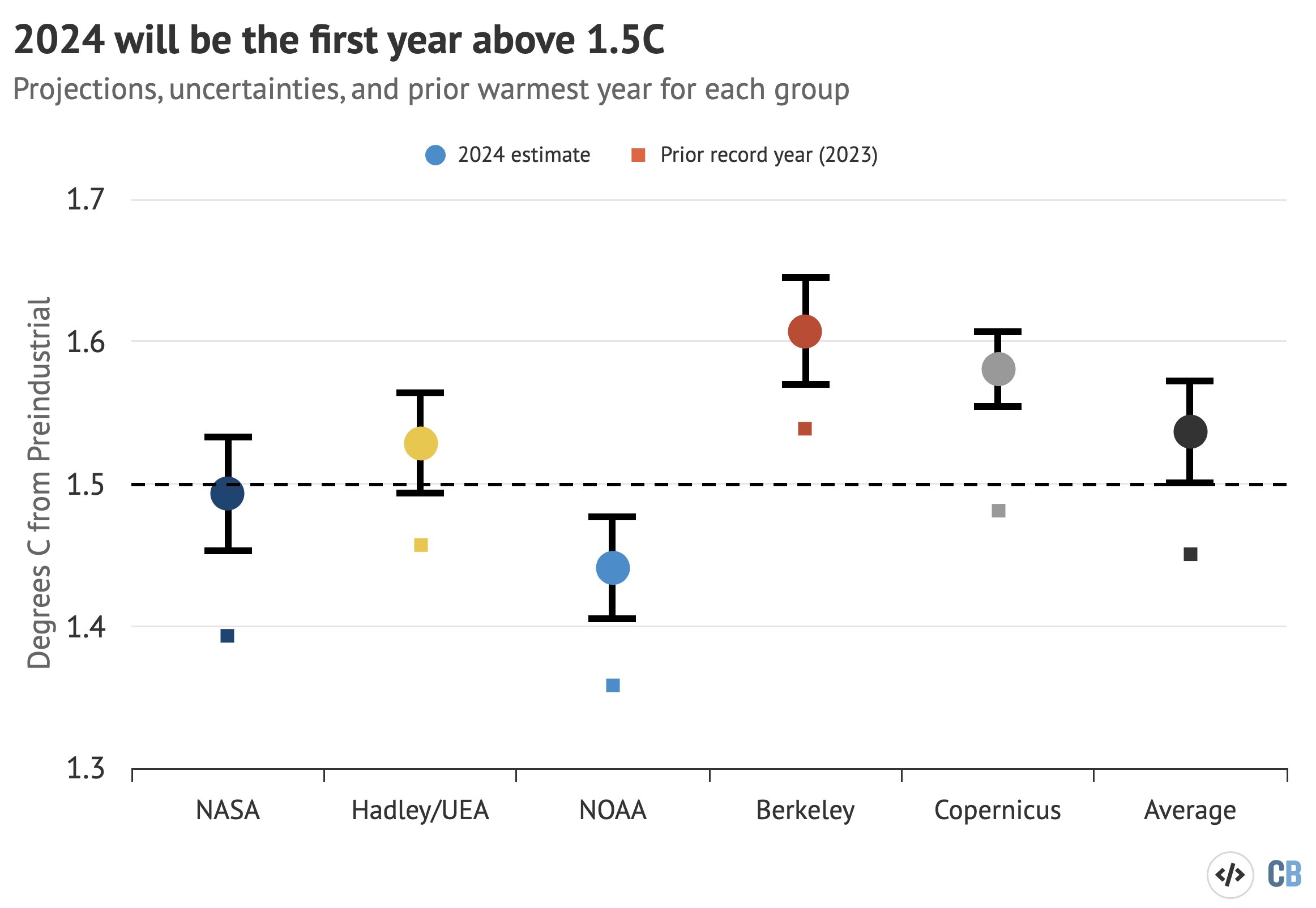this post was submitted on 07 Nov 2024
68 points (100.0% liked)
Science
22882 readers
114 users here now
Welcome to Hexbear's science community!
Subscribe to see posts about research and scientific coverage of current events
No distasteful shitposting, pseudoscience, or COVID-19 misinformation.

founded 4 years ago
MODERATORS
you are viewing a single comment's thread
view the rest of the comments
view the rest of the comments

Fucking lmao. So by the time the politicians are ready to say we’ve breached 1.5, we’ll all be dead. Good to know.
So if the average in 2050 is 1.49 (adjusted for natural fluctuations in the climate) - we're all good?
I assume if there's a massive volcanic eruption and the average is 1.7 - they'll [cough] cook the books and say there's no breach because the eruption was a natural fluctuation in the climate.
No, it's just cope. 1.5 is nonesense. No one except China is taking action on global warming and things are so totally out of control we can't build models that predict the rate of acceleration, let alone the outcome.
Asked a Scripps Institute of Oceanography lecturer over 30 years ago why methane from permafrost melting and the ensuing loop was not being factored in to their models, he said "we were focusing on other things". Guess it must have been too hard?
We just launched some satellites in the last couple of years that are capable of detecting methane plumes in the atmosphere. Before then people were just hauling equipment up there to measure the gasses as they were seeping out. It's difficult and imprecise work.
Yeah it's genuinely really hard and the timeframes are not really known
Not that it affects your overall point, but a large volcanic eruption would generally lower the temperature because the ash and chemicals it puts out increase the amount of light reflected back out of the atmosphere instead of being absorbed. It's basically the natural equivalent of the sorts of hairbrained geoengineering schemes techbros like to promise as a miracle cure. AFAIK there have even been what are basically miniature ice ages because of volcanic activity in recorded history.
So if, say, the Yellowstone volcano blew that would drop the global temperature back down for a year or two, as well as decreasing carbon emissions by shutting down the US and its coal mines and oil fields.
Also by shutting down a not insignificant number of kkkonsumers of same
A large volcanic eruption temporarily lowers the temperature, but the contribution of CO2 gas to temperature rise from volcanism would be significant if we weren't speedrunning a return to the Eocene thermal maximum
Still coping. : |